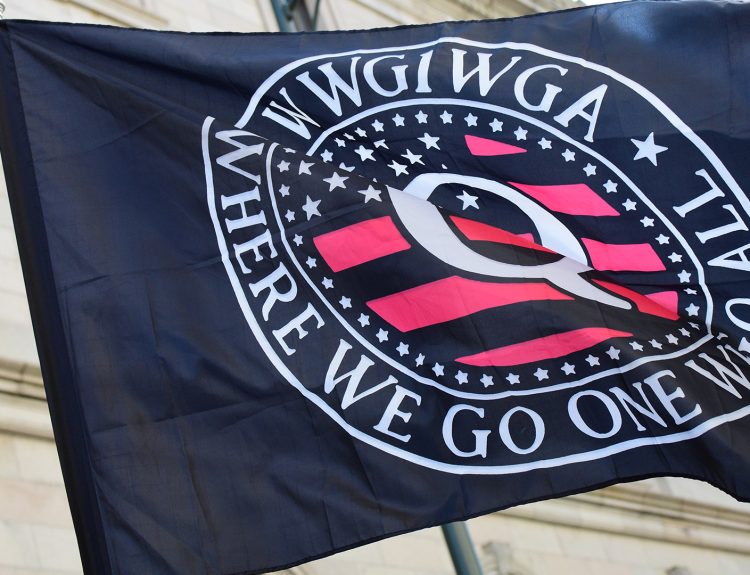Vaccines are simultaneously one of the most significant milestones in public health research and a highly charged emotional conversation all at the same time. Anti-vax sentiment is tied up in religious beliefs and anti-government mistrust, for many people, and current events reflect the tension that lies between public health and individual rights.
Vaccines: A Brief History
Vaccines are a medical marvel that, at the base of it, have stopped hundreds of thousands of people from getting sick and dying from preventable diseases ever since medicine discovered what inoculation could do.

The first true vaccine was discovered and implemented in 1796, with a man named Edward Jenner discovering that he could protect individuals against smallpox. Smallpox was a devastating illness that ravaged entire communities at the height of its reign, and discovering a way to protect against it was an incredible accomplishment.
Mandatory Vaccination Periods
There have been periods throughout history where vaccinations have been required of all peoples, in order to control outbreaks. For instance, in 1853, a law in England required universal vaccination against smallpox, with fines levied on people who did not comply.

Contemporary United States policy requires that children receive recommended vaccinations before entering public schools. There are exceptions for private institutions as well as home schoolings, and there is a movement of individuals who have sought exemptions from vaccination.
Anti-Vaxx History
Anti-vaccination sentiment is nothing new. Pushback against vaccines goes back as far as vaccines themselves. It consists of organized activity meant to increase vaccine hesitancy, often through spreading misinformation or disinformation.

The modern anti-vax movement generally follows the same playbook. Those who claim exemptions from vaccines often do so because they’ve been given poor information on vaccines, and the United States has several avenues through which individuals can claim these exemptions.
The Religious Exemption: Introduced
The most common exception that is claimed is the religious exemption. In the United States, many deeply conservative religious groups have fundamental beliefs against putting anything “artificial” in their body, and vaccines are no exception.

Because of the freedoms that individuals are afforded in the United States, under these religious exemptions, people are able to sidestep mandatory vaccination requirements. Growing use of these exemptions has led to outbreaks of preventable illnesses in the United States, but these exemptions are still observed in individuals who qualify.
A Common Request
Religious exemptions are the most common reason individuals use for choosing not to vaccinate a child or to go without vaccinations privately, but when it comes to work, American businesses are able to observe different rules.

Many businesses are able to require vaccinations as a term of employment. In many of these situations, individuals are not able to claim exemptions from vaccines and keep their employment. This is particularly important in government and healthcare jobs, where individuals remaining healthy is of the utmost importance.
Employment At Will
In positions where an individual agrees to a health requirement as a condition of employment, if they later change their mind and choose not to vaccinate themselves, they can lose their jobs. There are few consequences for businesses in these circumstances, because the United States, as a general rule, follows at-will employment.

There are some circumstances where at-will employment is not enough to release an employee for choosing not to get vaccinated, though. Recently, one hospital employee who was fired for refusing the flu vaccine sued the hospital that he was working at, and won the wrongful termination lawsuit.
A Hospital Worker Requests Exemption
The employee, who has remained anonymous in the wake of the lawsuit, was first hired at the Children’s Healthcare of Atlanta Hospital in 2016 as a maintenance worker, and shortly afterwards converted to Judaism.

Some Orthodox Jewish communities are staunchly against vaccinations and pollution of the body in any form, and the employee proceeded to apply for a religious exemption from the flu vaccine. In 2017 and 2018 the exemption was granted, but then the employee was denied the exemption in 2019.
The Employee Applied for a Review
Given that he had been granted the exception in previous years, the employee was understandably confused. He applied for reconsideration on the decision, and was asked to prove his “sincerely held religious beliefs.”

After going through the process to prove his “sincere belief” in Judaism, as per the hospital’s request, the employee’s request for a religious exemption to the vaccine was still denied. He continued to refuse the vaccine, against the hospital’s request, and was ultimately terminated for his refusal.
A Lawsuit Was Filed
The employee then filed a lawsuit against the hospital through the Equal Employment Opportunity Commission (EEOC), which is a federal agency that was established via the Civil Rights Act of 1964 in order to administer and enforce civil rights laws in the workplace.

The EEOC took the employee’s case. In their lawsuit, they argued that not only should the employee have been granted his religious exemption as a matter of rule, but also that the hospital clearly had the ability and wherewithal to do so, given that they had granted the exemption in years past.
Further Arguments
The lawsuit went further, arguing that the employee had been wrongfully terminated not only on principle, but also by policy. Due to the fact that he was a maintenance worker and had little interaction with patients and other hospital workers, he shouldn’t have been required to get the vaccine at all.

Because of these reasons, the EEOC argued that the hospital had violated the former employee’s employment rights under Title VII of the Civil Rights Act, and stated that he deserved to be compensated for his hardship and suffering in the wake of his termination.
Employees Cannot Be Fired For Their Faith
Title VII states that an employee cannot be fired from a job for their religion, and it goes further to require that employers must, in compliance with federal law, provide reasonable exemptions to their employees for sincerely held religious beliefs.

The EEOC tried to settle with the hospital out of court on behalf of their former employee, but the hospital refused. In court, the EEOC then proceeded to showcase the many mistakes that the hospital made ahead of firing the employee.
More Missteps
Evidently, when the employee first converted to Judaism, testimony revealed that a supervisor tried to deter him from converting fully, and even said that he “wasn’t really a Jew.” The hospital also approved seven other religious exemptions to the flu vaccine while denying the former employee, making the denial both cruel and unnecessary.

In light of the evidence that was presented in court, the judge sided with the EEOC and the former employee of the hospital. The hospital was ordered to pay a fee of $45,000 to the former employee for his hardship, but the changes didn’t stop there.
An Ultimate Win
The hospital was also ordered to make changes to their formal policy regarding religious exemptions to vaccination, particularly in regards to employees with lesser interaction with patients. The EEOC and the judge agreed that the vagueness of the vaccination policy was, at least in part, at fault for the situation, and ordered it to be rectified.

It was a win for worker’s rights in court, and the EEOC released a statement regarding the case, praising the judge’s decision. Federal employment policy exists for a reason, and sometimes, in order to protect worker’s rights, businesses have to be taken to court, and they ultimately have to pay.






